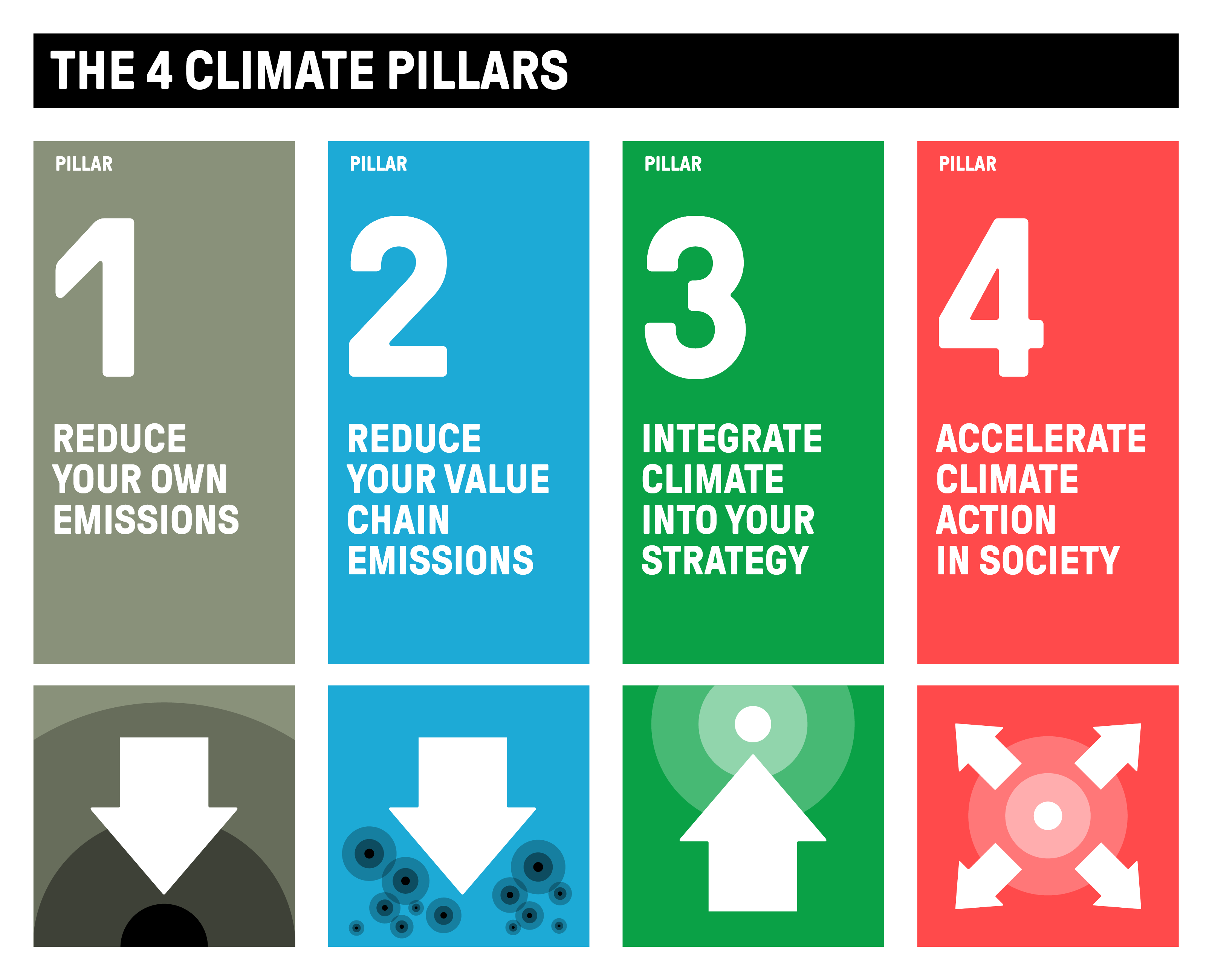About this guide
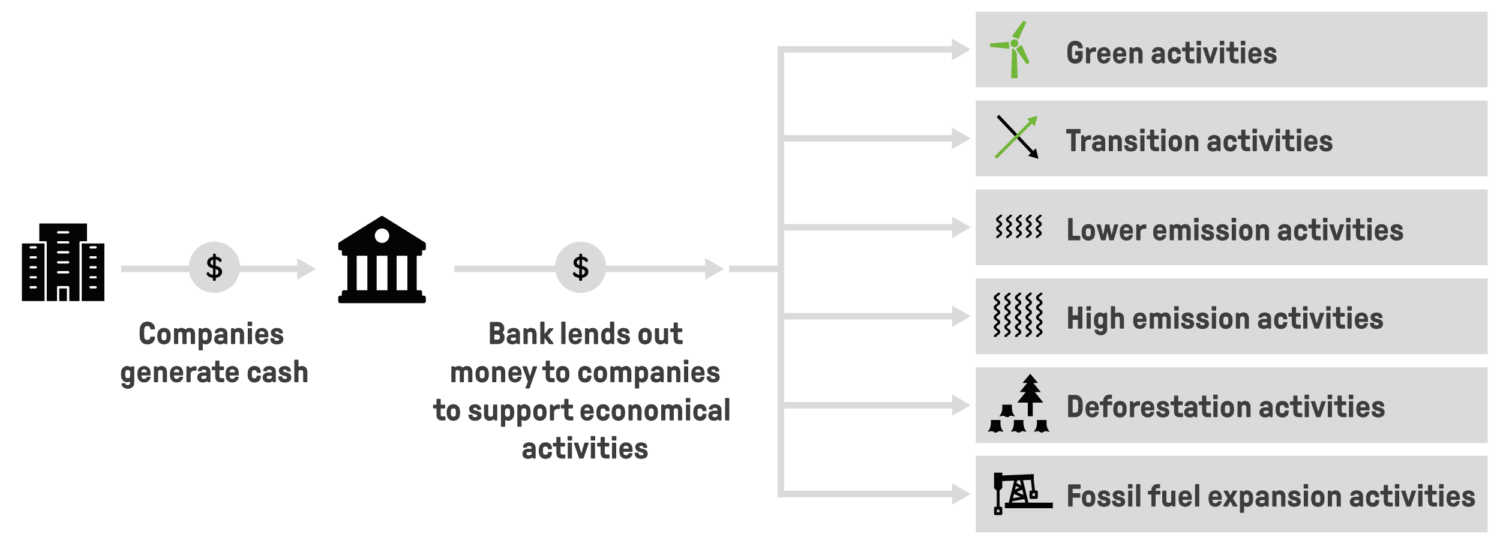
Every organisation has a financial supply chain similar to its material supply chain. The financial supply chain includes suppliers of financial services such as cash management. Just as the material supply chain, the financial supply chain also generates emissions. These arise from how banks use a company’s money to finance activities that generate emissions.

For many companies, their total greenhouse gas emissions would be significantly higher if emissions from cash holdings in the bank were counted. However, these emissions are currently not quantified or reported in corporates’ greenhouse gas accounting.
Actioning the 1.5 °C Business Playbook
The 1.5°C Business Playbook sets out a four-pillar climate strategy focusing on four pillars that need to be addressed in a company’s climate strategy to align with the 1.5 °C ambition.
Pillar 2 focuses on a company’s activities to reduce its value chain emissions.
One such activity is to evaluate and take action to reduce the footprint of the company’s financial supply chain. The Greening Cash Action Guide lays out how to do that.
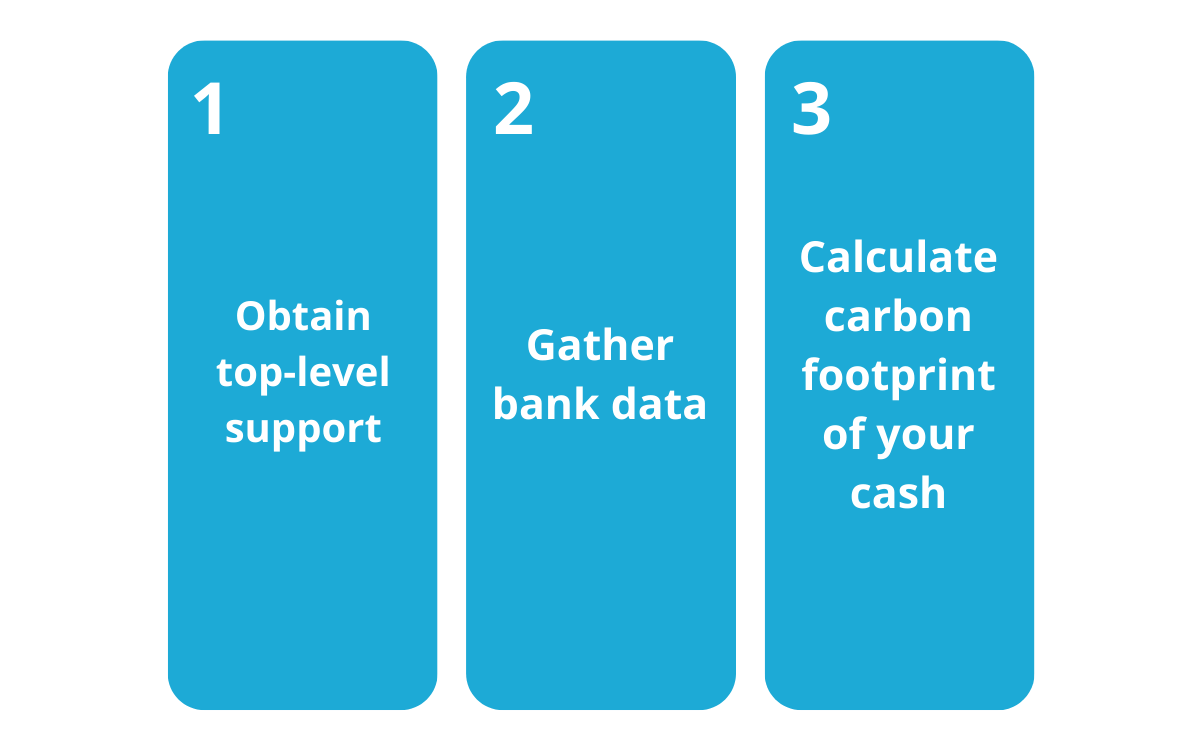
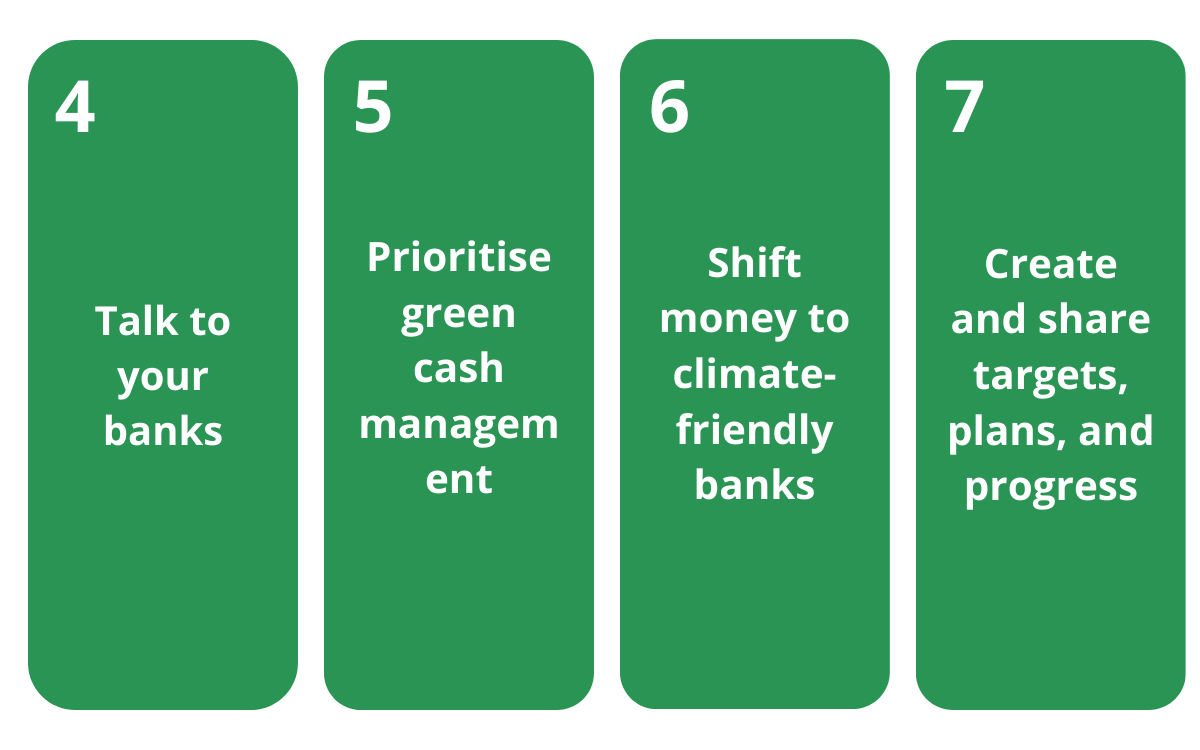
Seven key actions to start greening corporate cash
This guide shows that companies can take actions to reduce the emissions related to their cash holdings. They will face challenges, partly because of the evolving regulatory landscape for financial institutions and partly because banks rarely provide the financial emissions data that companies require to fully measure the emissions financed by their corporate cash.
Despite these challenges, action is possible and can help drive the transformation towards a more sustainable financial sector.
What others say about the Greening Cash Action Guide
Greening cash to set in motion a virtuous cycle
By action on the guide, companies can reduce emissions from their cash holdings in the bank. They also send an important signal to their banks, potentially setting in motion a virtuous cycle in which companies and banks put stricter requirements on each other, accelerating the decarbonisation of the financial system.
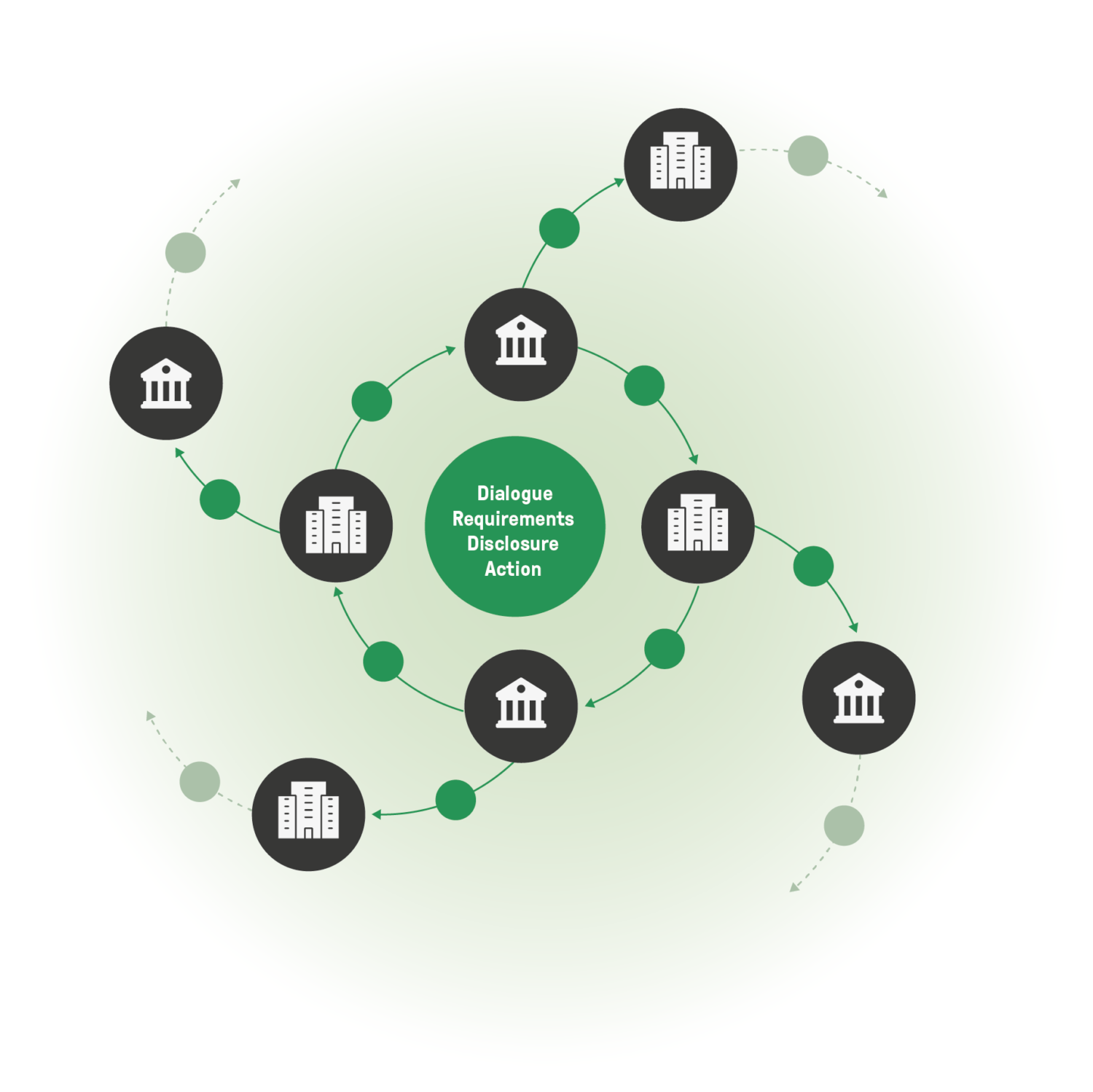
Accelerating Greening Cash Action
Our mission is to accelerate exponential climate actions and solutions. If the Greening Cash Action Guide sparked your interest to talk further about actions to green corporate cash and support the decarbonisation of the financial system, drop us a line hello@exponentialroadmap.org.
Latest News
Neste partners with the Exponential Roadmap Initiative
Neste and the Exponential Roadmap Initiative (ERI) have started collaboration aiming to align with the criteria of the UN Climate Change High-Level Champion’s Race to Zero. ERI will support Neste with advice on identifying and closing key gaps for meeting the criteria for becoming a member in ERI and the Race to Zero.
Will AI help or harm the planet?
In a comment in the journal Nature, Exponential Roadmap Initiative Co-founder Owen Gaffney together with tech experts from Microsoft and scientists says what’s needed are rapidly developed climate scenarios that explore the impact of AI on the economy and emissions.
Apple joins the Exponential Roadmap Initiative
Apple joins the Exponential Roadmap Initiative. The collaboration will support Apple on its journey to reduce its greenhouse gas emissions by 75% by 2030 and 90% by 2050, and in scaling climate solutions exponentially.


